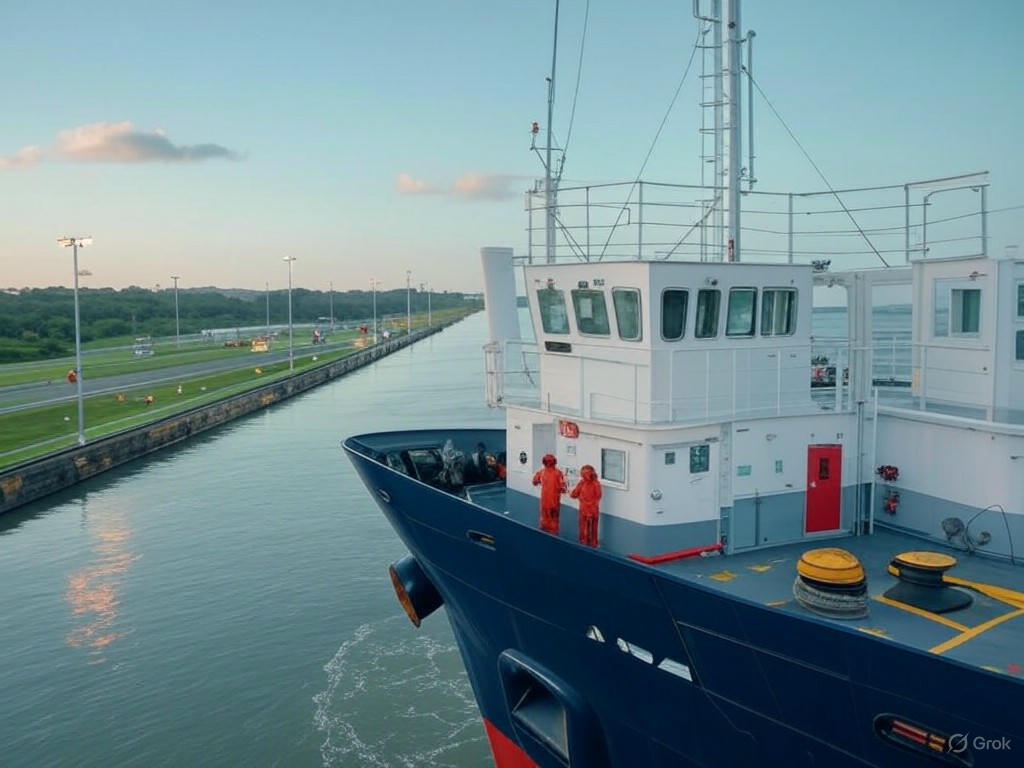Panama Canal’s Neutrality at Stake Amid Ports Acquisition Concerns
The Panama Canal, a vital artery of global trade, is once again at the center of a heated debate over its long-standing principle of neutrality. The canal’s administrator has raised alarms over a recent deal involving MSC, a major shipping conglomerate, acquiring significant port assets from Hutchison in Panama. This transaction, according to the canal’s leadership, could jeopardize the waterway’s compliance with a historic treaty between the United States and Panama, which mandates impartial access and operation of the canal for all nations. The concern is that such a deal might tilt the balance of influence, potentially favoring specific commercial interests over the equitable framework that has defined the canal’s operations for decades.
The Panama Canal is not just a marvel of engineering; it is a symbol of international cooperation, linking the Atlantic and Pacific Oceans and facilitating roughly 6% of the world’s maritime trade. Its neutrality, enshrined in the 1977 Torrijos-Carter Treaties, ensures that no single entity or nation can dominate its operations or prioritize access. However, the acquisition of key port infrastructure near the canal by MSC, a powerhouse in global shipping, has sparked fears that this neutrality could be undermined. The canal’s administrator argues that consolidating control over critical logistics hubs adjacent to the waterway might create conflicts of interest, potentially allowing MSC to exert undue influence over shipping schedules, fees, or access priorities. This, in turn, could disrupt the level playing field that the canal has maintained since its transfer to Panamanian control in 1999.
Critics of the deal point out that while foreign investment in Panama’s port infrastructure is not inherently problematic, the scale and strategic importance of the assets involved in this transaction raise red flags. Ports serve as gateways to the canal, and control over them could indirectly affect how traffic flows through this critical chokepoint. On the other hand, supporters of the acquisition argue that MSC’s involvement could bring much-needed investment, modernize facilities, and boost Panama’s economy. They contend that robust oversight and adherence to international agreements can prevent any erosion of the canal’s neutrality. Yet, the canal authority remains skeptical, urging a thorough review of the deal to ensure compliance with treaty obligations and to safeguard the waterway’s role as a neutral conduit of global commerce.
As this controversy unfolds, the stakes couldn’t be higher. The Panama Canal is more than a trade route; it’s a geopolitical linchpin. Any perception of bias or favoritism could strain diplomatic ties and disrupt the delicate balance of international trade. The canal’s leadership has called for vigilance, emphasizing that protecting neutrality is non-negotiable. With the eyes of the world on Panama, the outcome of this dispute will likely set a precedent for how strategic infrastructure deals are navigated in the future. For now, the canal remains a testament to global unity, but its guardians must tread carefully to ensure it stays that way.


